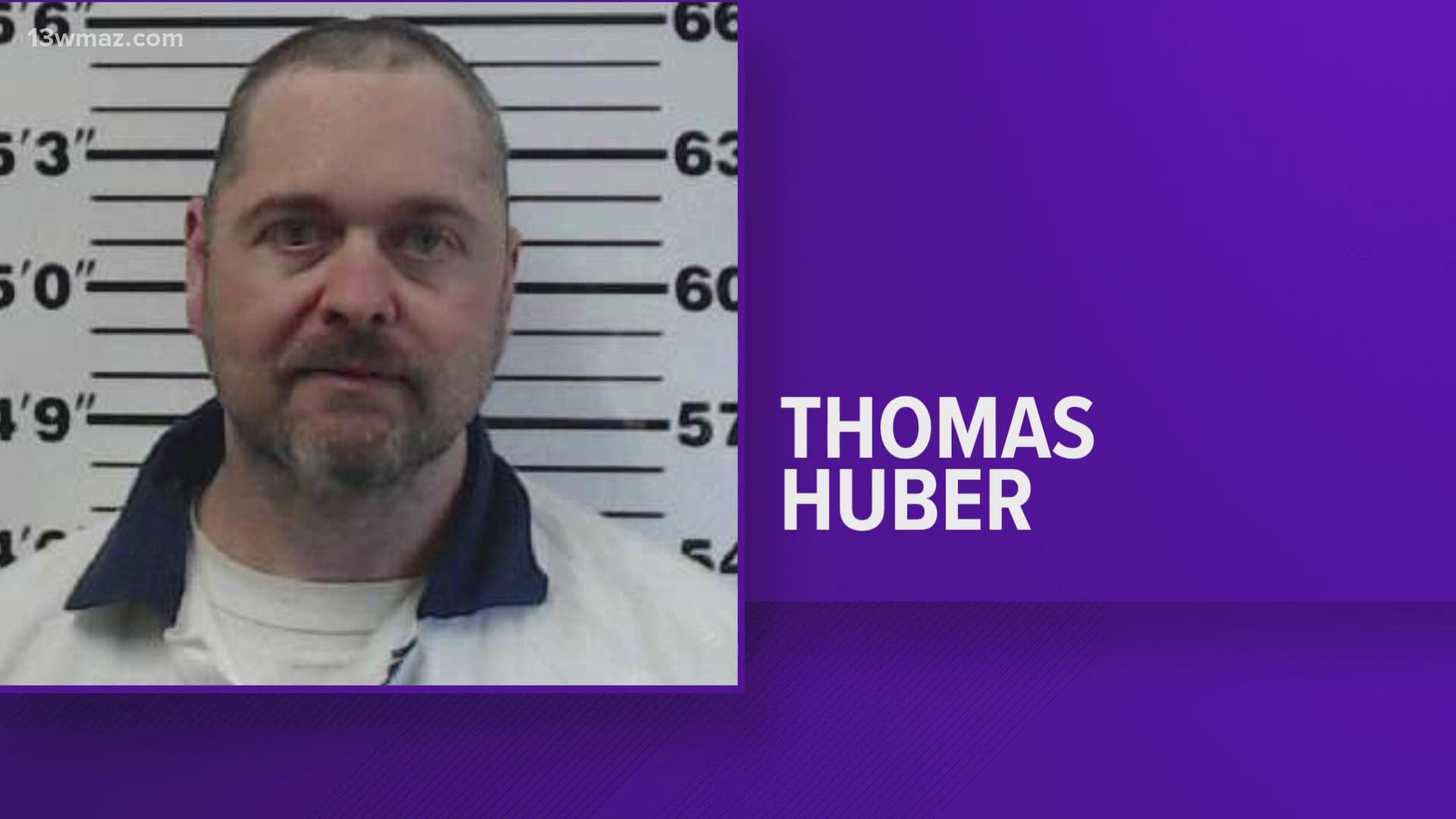LAURENS COUNTY, Ga. — The Georgia Supreme Court upheld the murder conviction of a Laurens County man, rejecting his effort to overturn his conviction, according to an opinion released by the high court on Tuesday.
Andrew Thomas Huber will remain in prison for the rest of his life for the death of Daniel Raburn on July 3, 2020, the court found.
Raburn and his fiancé, Brandilee Woodard-Brady, had a "rocky" and "toxic" relationship, the opinion explained.
That night, Woodard-Brady and Raburn got into a fight. It happened in the 900 block of Village Circle in Dublin. The opinion said she then sent a text to Huber and a friend, Thomas Wayne Harper, that set in motion Raburn's death: "Beat [Raburn's] a**."
Later, Raburn was found dead in his front yard, with multiple injuries including a gunshot to the head.
In his appeal, Huber argued that the evidence to put him behind bars was insufficient, his attorney was ineffective and the instructions given to the jury were incorrect.
However, on every front, Justice Carla Wong McMillian and all other justices found the jury had properly convicted Huber in Raburn's murder. They dismissed his effort for a new trial.
While Huber did not actually shoot Raburn, Harper did, the opinion said. But still, Huber was still found guilty of Raburn's murder since he was involved in the fight that, ultimately, caused Raburn's death.
When Raburn saw Harper, who is Black, he said "get that n****r out of his yard," which Harper says set him off. They got into a fight and, eventually, Harper admitted he shot Raburn as he "continued to hurl racial slurs at" him, the opinion said.
Even if Huber had not intended for Raburn to die, the court pointed to previous cases that had reached a similar conclusion: the pairs' joint effort to commit violence against Raburn made Huber criminally responsible for Harper's actions during that fight.
Beginning the fight "created a foreseeable risk of death" which meant Huber too could be held accountable, they said.
While Huber argued that there wasn't enough evidence to convict him, McMillian's opinion points to the bloody clothes found in Huber's car, Huber driving Harper away from the scene and his involvement in the fight with Raburn.
Additionally, even though Huber claimed he was walking away from Raburn when Harper fired the fatal shot, the justices did not buy it.
"Huber admitted that he aided Harper's fight with Raburn. And after Harper shot and killed Raburn, Huber drove Harper away and never called 911. Huber's clothes were also covered with Raburn's blood despite Huber's claim that he was not near Raburn when Harper shot him," the opinion said.
Because of that, they said the evidence suggested Huber had "active participation before, during and after" Raburn was shot. Therefore, Huber could be found guilty even though Harper actually fired the shots.
On Huber's other arguments, he argued that his attorney failed to do enough to undercut the credibility of the witnesses in the case and should have fought harder for different jury instructions, which jurors use as the legal framework for their decision of guilt or innocence.
But the judges disagreed. His attorney, according to the opinion, had done a sufficient job that Huber's constitutional rights weren't violated. Plus, the jury instructions Huber took issue with had actually been applied properly.
Therefore, the court unanimously found that Huber's constitutional right to a fair trial was not violated, and his conviction can stand.

